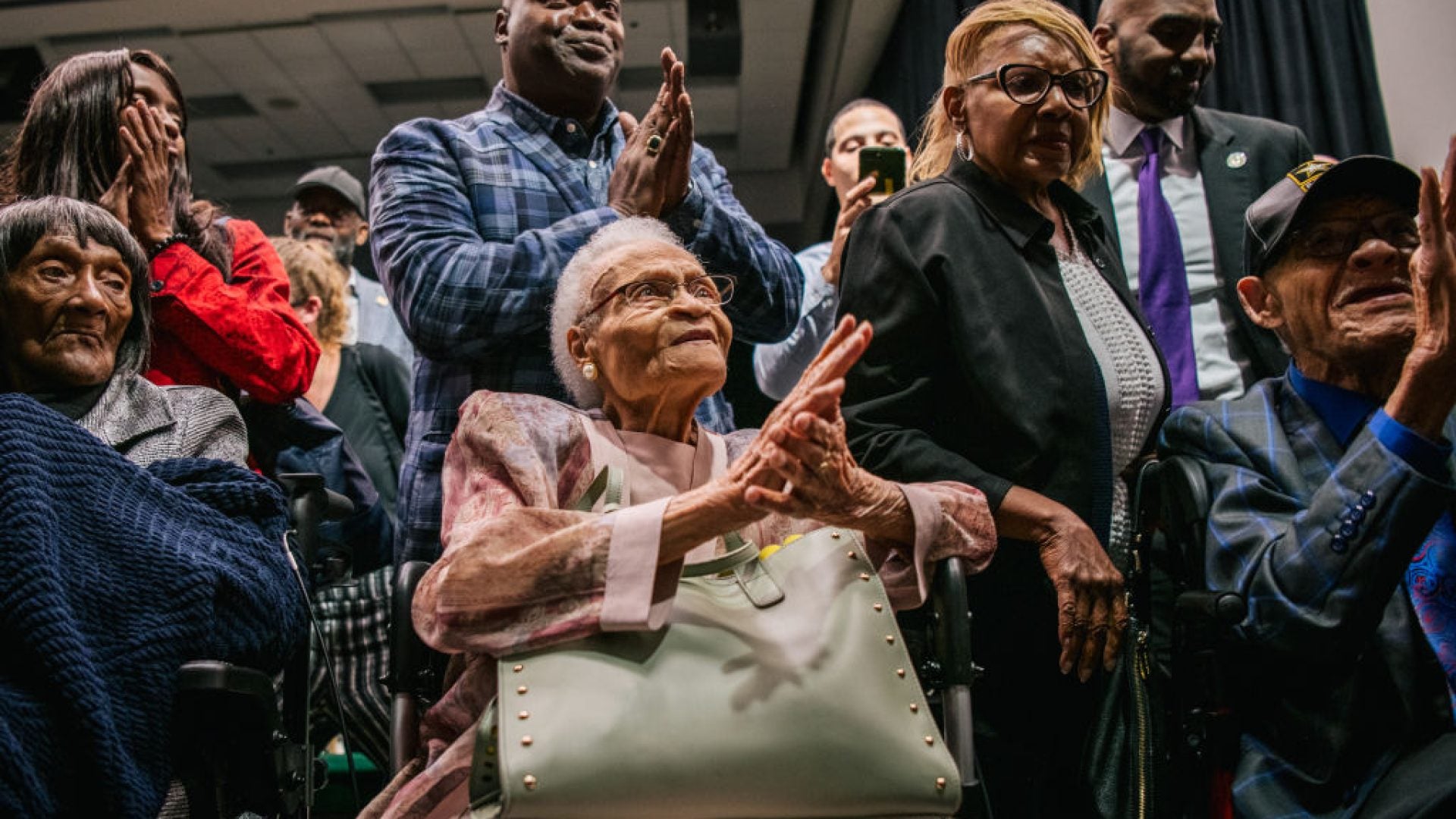
On Wednesday, the Oklahoma Supreme Court dismissed a lawsuit filed by survivors of the 1921 Tulsa Race Massacre that argued they should be compensated by the city. The ruling marked a significant setback for advocates seeking financial reparations for one of the deadliest attacks against Black people in U.S. history. The massacre left up to 300 Black people dead and devastated a prosperous district known as Black Wall Street.
The court upheld a previous decision by a district court judge in Tulsa, stating that the plaintiffs’ grievances about the destruction of the Greenwood district did not fall within the state’s public nuisance statute, The Associated Press reports.
The court wrote, “Plaintiffs do not point to any physical injury to property in Greenwood rendering it uninhabitable that could be resolved by way of injunction or other civil remedy. Today, we hold that relief is not possible under any set of facts that could be established to be consistent with the plaintiff’s allegations.”
The city of Tulsa said it “respects the court’s decision and affirms the significance of the work the City continues to do in the North Tulsa and Greenwood communities,” adding that it remains committed “to working with residents and providing resources to support” the communities.
The lawsuit sought to compel the city of Tulsa and others to compensate for the destruction of the Black district by a white mob on May 31 and June 1, 1921. Survivors Lessie Benningfield Randle and Viola Fletcher, both over 100 years old, sued in 2020, hoping to achieve “justice in their lifetime.” A third plaintiff, Hughes Van Ellis, Fletcher’s brother, died last year at age 102. The court found that the plaintiffs’ claims did not sufficiently support a case for unjust enrichment, typically applicable to contractual relationships.
Other defendants included the Tulsa Regional Chamber of Commerce, the Board of Tulsa County Commissioners, the Tulsa County Sheriff, and the Oklahoma Military Department. The lawsuit, filed under Oklahoma’s public nuisance law, argued that the massacre’s aftermath still affects the city today, perpetuating racial and economic disparities. The plaintiffs sought a detailed accounting of the losses, the construction of a hospital in North Tulsa, and the creation of a compensation fund.
In a statement in response to the court’s ruling, the legal team for the survivors of the Tulsa Race Massacre of 1921 said that their clients “will file a petition for rehearing with the Oklahoma Supreme Court asking the Court to reconsider its decision.”





